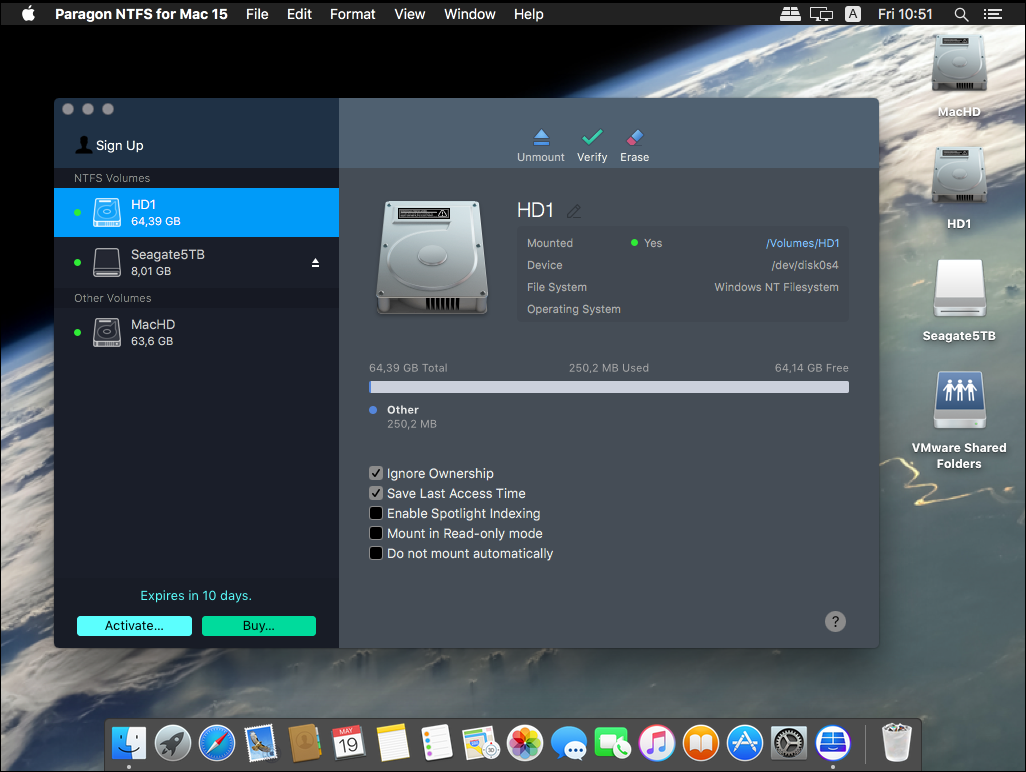
- Open source microsoft ntfs for mac for mac#
- Open source microsoft ntfs for mac mac os x#
- Open source microsoft ntfs for mac full#
- Open source microsoft ntfs for mac software#
¨Tuxera is fully committed to provide Mac users with the best file system interoperability experience.
Open source microsoft ntfs for mac for mac#
¨We are pleased to announce the awaited new Tuxera NTFS for Mac 2011.4 release that makes Mac-Windows interoperability easier and more productive” says Oscar Santolalla, Product Manager at Tuxera. Tuxera NTFS for Mac is also very popular in companies and universities with heterogeneous computing environments that include both Windows and Mac computers.
Open source microsoft ntfs for mac software#
Transferring files from Windows to Mac and vice versa is made easy with the help of Tuxera software as the common Windows-formatted hard drives and memory sticks can be used.
Open source microsoft ntfs for mac mac os x#
Tuxera NTFS for Mac allows Apple Mac OS X users to read and write in Windows NTFS format fuss-free. Additionally, this release ensures improved responsiveness when using multiple simultaneous NTFS volumes on 64-bit Mac OS X kernels. Tuxera NTFS for Mac 2011.4 brings in automatic translation of filenames, removing any problem when copying files to NTFS volumes. New components of Mac OS X recently started to encode file attributes in a way that Windows Explorer was not able to access.
Open source microsoft ntfs for mac full#
Tuxera NTFS for Mac also ensures full support to the next Mac OS X version 10.7 Lion expected to be released later in 2011. Among the numerous added enhancements, the new version includes automatic translation of filenames and important improvements in performance on 64-bit kernels. HELSINKI, FINLAND – – Tuxera Inc., the leading provider of Windows-compatible file systems for Linux, Android, Mac and other platforms, today announced the availability of a new release of its widely adopted Tuxera NTFS for Mac. Talk about a fine partition manager.Improves Responsiveness for 64-bit Kernels and Supports Mac OS X Lion Looking forward to seeing GPartEd support EXFAT real soon. I definitely LOVE the idea that the EXT-type file systems are very “fault-resilient/resistant”. It uses a different method of tracking/updating file system changes altogether. The NT core would have to have some serious rewrites within it, in order to use the abilities of any of the EXT? file systems, because the NT core does not provide the same type of “journaling capabilities” as implemented by Linux/UNIX. DOS did not need to worry so much, because it operated on a much simpler file system, and on how it updated changes to its file system.

Windows has come to that point where it also MUST be shut down properly, due to the tracking/updates to changes within its file systems. Therefore, your media ends up needing extra “help”. – A case-in-point as to why Linux (and UNIX) MUST be shut down in a proper/orderly fashion, or else your storage media will not have been synchronized with the recent changes made to it.


Linux pretty much did similarly to what UNIX had always done before it: A granular, virtual file system (as you stated, via “Inodes”), and centered around “journaling” file system changes/updates in temporary memory buffers, before finally writing them to the storage media. We also support the eventual inclusion of a Linux kernel with exFAT support in a future revision of the Open Invention Network’s Linux System Definition, where, once accepted, the code will benefit from the defensive patent commitments of OIN’s 3040+ members and licensees.įor more information, please see the Microsoft technical specification for exFAT at. To this end, we will be making Microsoft’s technical specification for exFAT publicly available to facilitate development of conformant, interoperable implementations. It’s important to us that the Linux community can make use of exFAT included in the Linux kernel with confidence. It’s why hundreds of millions of storage devices that are formatted using exFAT “just work” when you plug them into your laptop, camera, and car. Microsoft ♥ Linux – we say that a lot, and we mean it! Today we’re pleased to announce that Microsoft is supporting the addition of Microsoft’s exFAT technology to the Linux kernel.ĮxFAT is the Microsoft-developed file system that’s used in Windows and in many types of storage devices like SD Cards and USB flash drives.


 0 kommentar(er)
0 kommentar(er)
